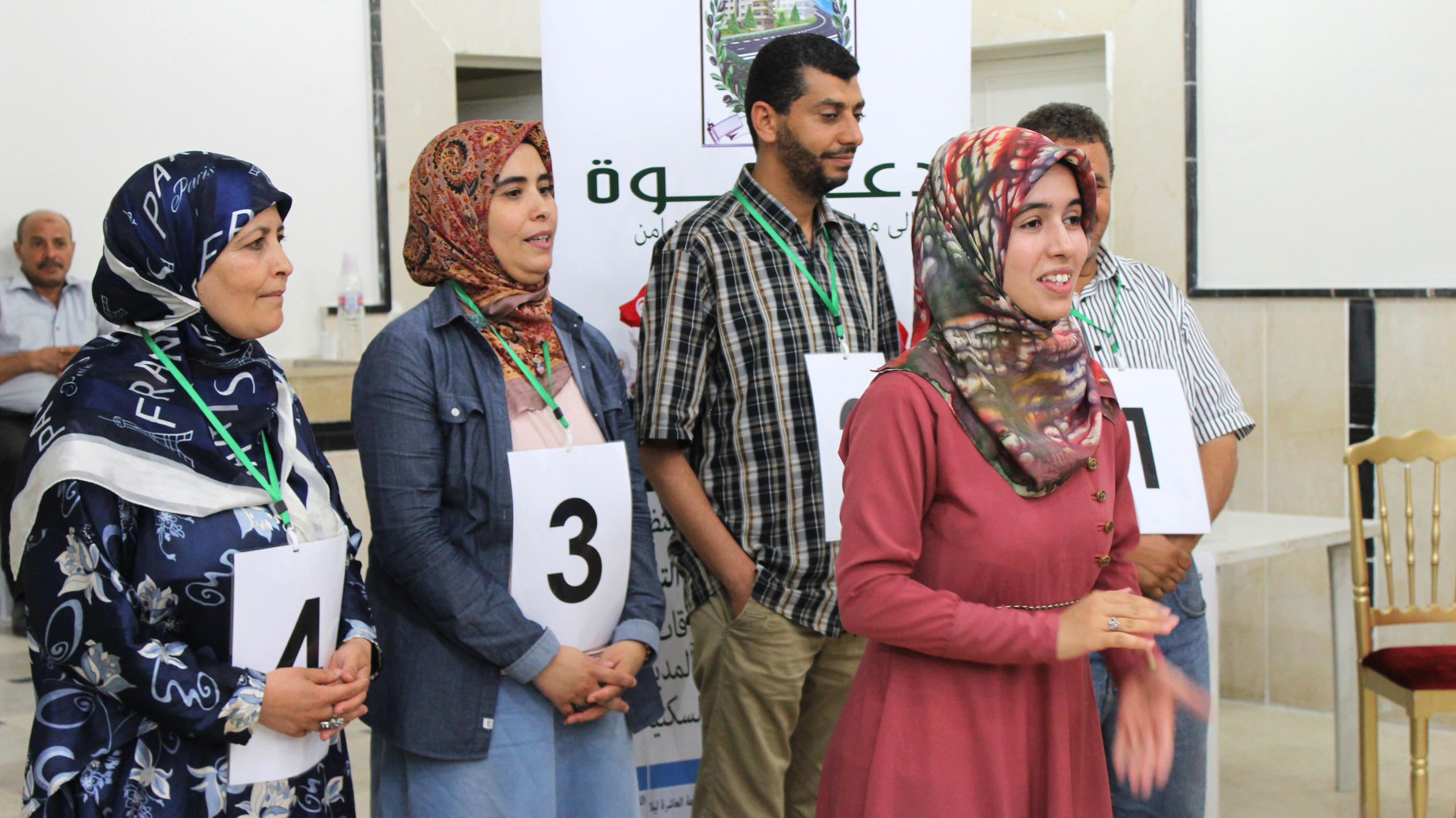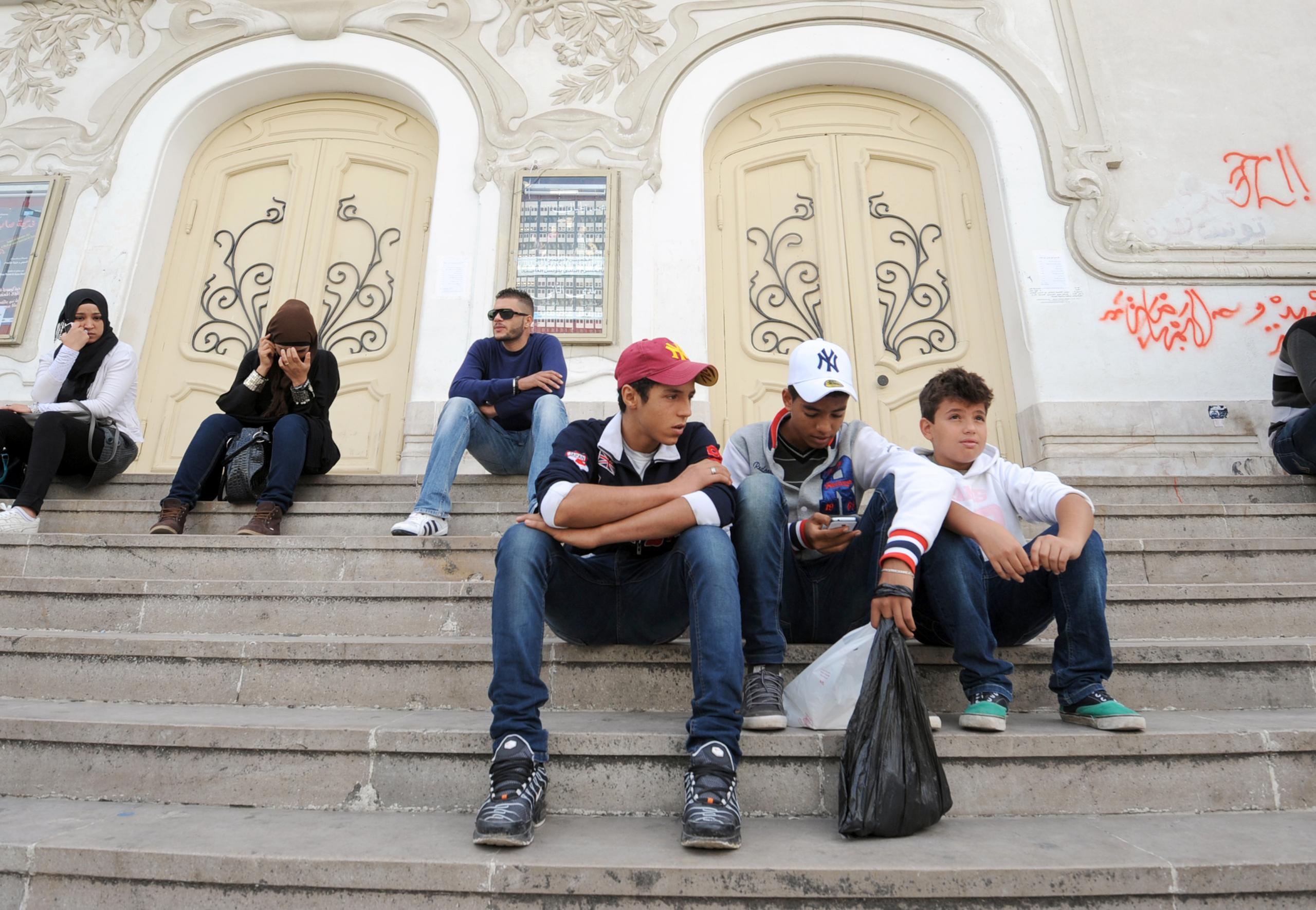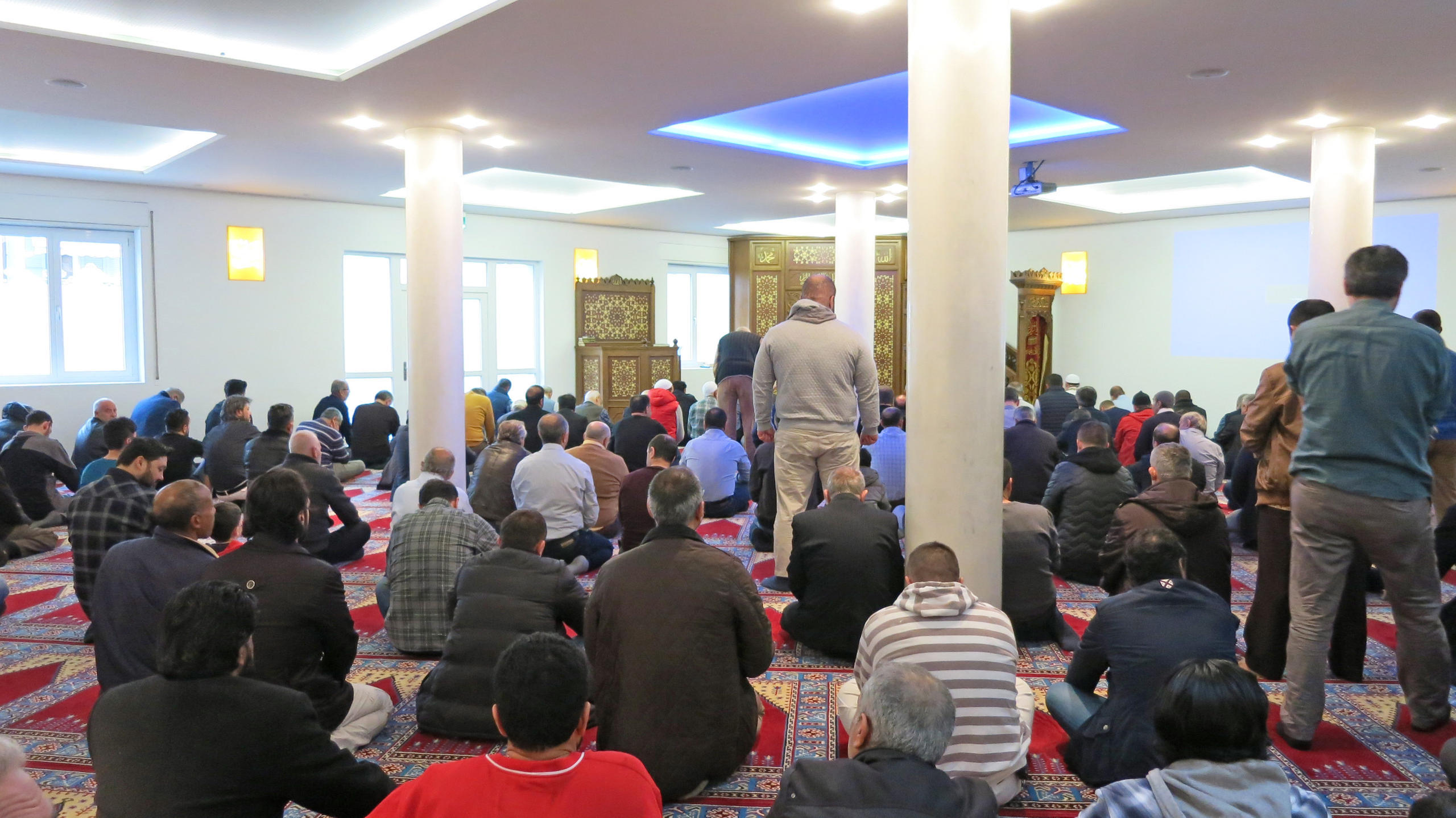Swiss help empower young people in Tunisian slums

Urban working-class areas around the Tunisian capital, Tunis, have a reputation as breeding grounds for crime and religious extremism. Switzerland has contributed to a local project that aims to help youth find a job and get involved in public affairs.
In 2015, International AlertExternal link, a London-based non-governmental organisation, started working in two poor neighbourhoods north of Tunis, Ettadhamen and Douar Hicher. Both became prominent during the Tunisian revolution owing to their early participation, the number of inhabitants killed in confrontations with police, and the rise of the now-banned Ansar al–Sharia (Supporters of Sharia) organisation.
“We wanted to change the negative image and conduct a research study to understand the living conditions of the youth in the two suburbs, particularly under the rule of the deposed president Zine al-Abidine Ben Ali, when field social research was banned,” Olfa Lamloum, director of the local International Alert office, told swissinfo.ch.
International Alert sponsored a team of researchers, including sociologists and demographers, and provided logistical support.
The group spent the first months establishing relations with local authorities, parties and charities. The first practical step was the formation of focus groups including 15 youths – sometimes more – who had dropped out of school, been imprisoned or been sent to reform centres. The focus groups also included members of local associations and businesses.
Switzerland’s involvement in the International Alert project follows its non-confrontational approach in the fight against terrorism, one that focuses on the creation of a social and economic climate that eliminates the causes of extremism and violence, particularly in poor areas such as Ettadhamen and Douar Hicher.
Revolution disappointment
The team’s first conclusion was that people were disappointed by the revolution in 2011, mainly because of failed expectations, especially about employment.
A total of 90% of the young people said their economic situation had not improved; 45% reckoned it had deteriorated. When asked why, they blamed unemployment, local corruption and a rise in prices.
The young people also complained of mistreatment by police and the neighbourhoods’ bad reputation. Coming from Douar Hicher limits one’s job options: when residents go into central Tunis, the reaction is: “What are you doing here?”
The field investigation also revealed a high level of politicisation among the young – a result of the revolution – but they rejected the parties and, to some extent, associations.
When asked about Ansar al-Sharia, respondents were clear that relationships with people in the same or surrounding streets was more important than the desire to apply Sharia. That said, most people rejected the classification of Ansar al-Sharia as a terrorist group.
Olfa Lamloum said this did not mean people supported the organisation. She pointed out that 80% of the young people questioned knew young men who had travelled to Syria, but, in their eyes, the fighters were not hardliners but youths who supported other young people seeking to destroy a tyrant.
She said they had been influenced considerably by images at the peaceful beginning of the revolution in Syria. Tunisian volunteers went to Aleppo where initially there were no fighters from al-Qaeda.
Regaining the district
In this challenging environment, the International Alert team entered the slums to empower the youth and to repair the reputation of Ettadhamen and Douar Hicher.
It achieved tangible results, mainly the formation of the “Ettadhamen youth coordination committee”. The committee members were activists, including some members of associations.
International Alert provided training and support to the committee. It produced an open street map, the first of its kind in Tunisia.
The organisation trained the youth and gave them mobile phones with GPS, which allowed the drawing of the district’s map, including sites for schools, health centres, mosques, police stations, lampposts and all public facilities.
“The objective of this is to help young people regain their district and understand its needs. This mission therefore represents moral support for them in front of the local authorities,” Lamloum said.
During a meeting in Tunisia last autumn with Swiss Foreign Minister Didier Burkhalter, a youth delegation said the experience of working with International Alert “gave a constructive meaning to our lives and enabled us to integrate into society and discover non-traditional methods of improving the living conditions of the district”.
The young people now participate in the regional councils for development. This has elevated their status in the eyes of the others and to a large extent rid them of the stigma that had dogged them.
Solidarity
This was followed by a more advanced step, setting a budget for three fields: street lighting, improving the environment and fixing roads. International Alert trained the young people and then signed an agreement with the municipality to create the budget.
Olfa Lamloum has spoken proudly about the meetings in Ettadhamen to elect representatives of administrative divisions with the municipality. Afterwards, the elected youth received training in negotiation.
At the same time, International Alert arranged discussion forums between the central authorities and the youth with the purpose of finding a space to crystallise joint recommendations that would make the municipality aware of various social phenomena.
The forums were attended by three members of parliament. “The purpose of this is to create tools and techniques to convey the demands of the youth to the authorities,” Lamloum said.
In addition, model economic projects based on solidarity were discussed. The aim of this was to encourage the youth to think of non-traditional ways to find a job and to demonstrate the feasibility of social solidarity development.
When one of the youths was asked to give an example of these projects, he mentioned a project for sorting plastic waste, saying members of International Alert had worked with them in the field, which had made them feel their work had a value.
International Alert
The NGO International Alert was established in Britain in 1986. Its goal can be summed up as: “helping to find peaceful solutions to conflicts”.
Its founders initiated their work after noticing that conflicts between countries was declining while conflicts within countries was increasing.
The NGO says denunciating human rights violations is not enough and that there is a need for a new approach, in the field.
Translated from Arabic by Mohamed Shukri

In compliance with the JTI standards
More: SWI swissinfo.ch certified by the Journalism Trust Initiative











You can find an overview of ongoing debates with our journalists here . Please join us!
If you want to start a conversation about a topic raised in this article or want to report factual errors, email us at english@swissinfo.ch.